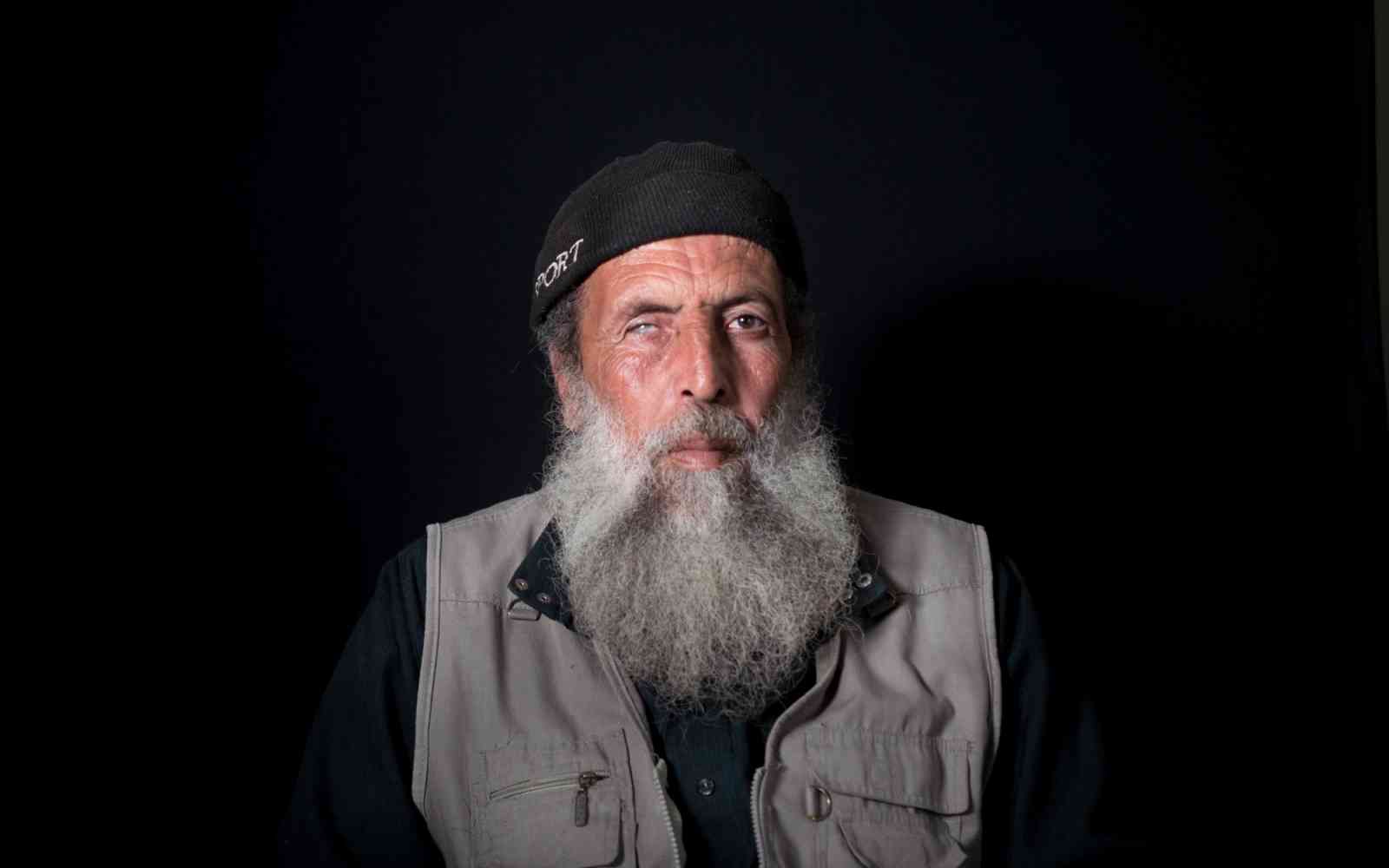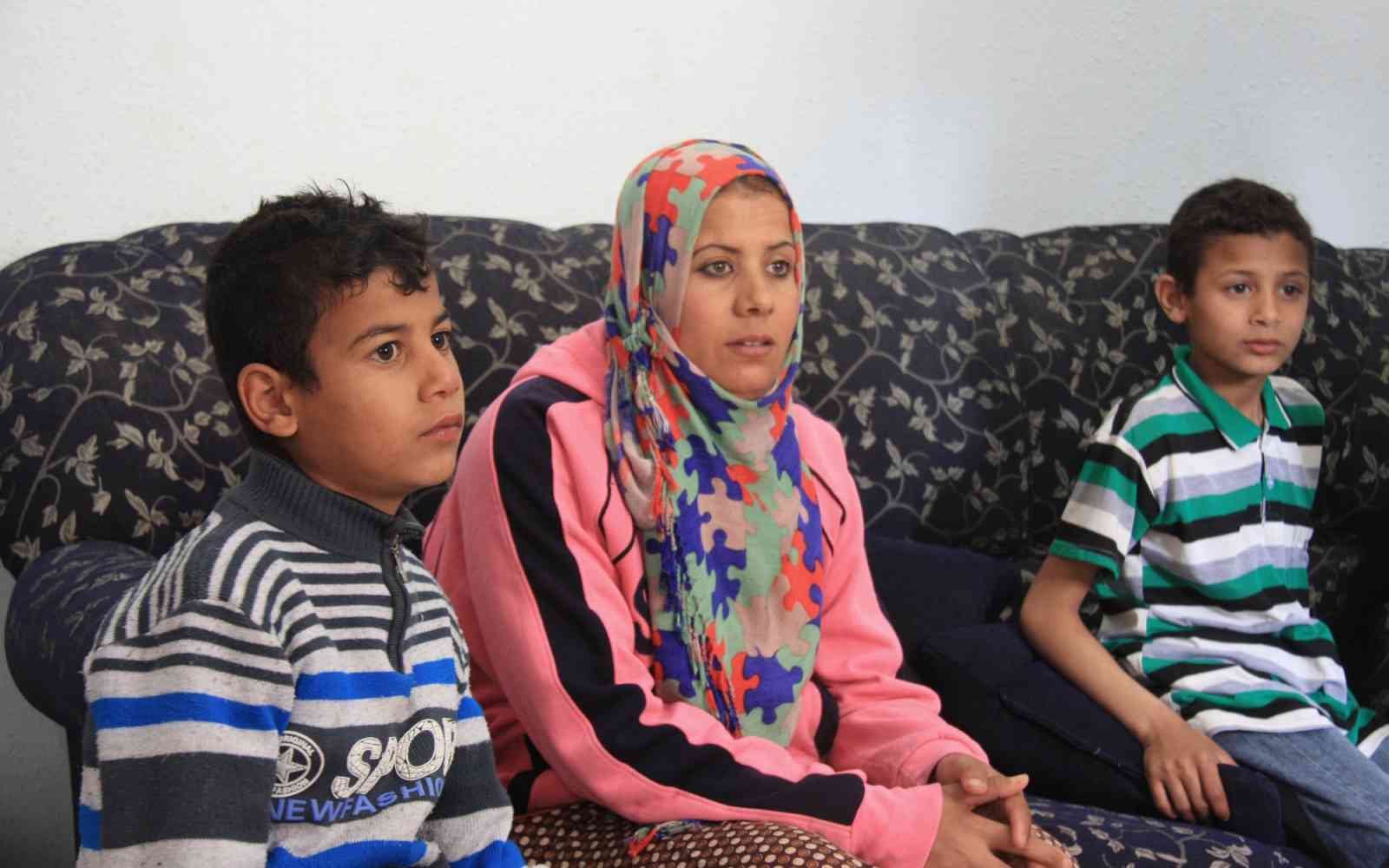The United Nations Office for Project Services (UNOPS)

Beyond Infrastructure
Approximately half a million people living in the Gaza Strip were displaced following a 51-day conflict in the summer of 2014. More than 160,000 houses were damaged, of which 11,000 houses were totally destroyed
Today, more than 20,000 people remain displaced from this conflict.
Mos’ad Al Smairi recalls what he lost during the conflict: “Everything! Not just the house. The trees in the garden where we used to sit. Everything that made you happy was destroyed.”

In one minute I woke up to find my life destroyed… As if I was born that day with nothing.
Roa Al Farra, a mother of two, recalls her first thoughts after her house was destroyed: “I looked at the children and thought, how will I raise them, feed them, clothe them?”
With no place to go, families took shelter wherever they could.
“We took shelter in a deserted house,” described Suad Al Farra. “There were rats and lizards.” With no choice but to accept these new living conditions, she questions: “Imagine you lost your home. What would you have done?”

Of course, losing our home affected the children a lot. It had an emotional impact: Depression, stress from losing their home, their rooms and their toys. Their performance at school also dropped... They were not able to play or study like normal.
Today, daily life in Gaza remains a struggle. Less than five per cent of available water is fit for human consumption, and many families rely on purchasing water from private vendors at a high price, often without quality control. Sanitation is also a challenge, with 25 per cent of the population not connected to a sewage system, increasing rates of waterborne diseases. Faced with chronic energy shortages, the provision of basic services, including health and education, also continues to decline.
In an effort to provide relief to the ongoing humanitarian crisis in Gaza, UNOPS is implementing a housing project aimed at contributing to the successful and sustainable reconstruction of totally destroyed housing in the territory.
Beneficiaries are among the internally displaced population having completely lost their home during the 2014 conflict and are among the most vulnerable in society. Particular attention is given to women and elderly headed-households, as well as people living with disabilities.
But UNOPS is helping families rebuild more than just their homes.
Far exceeding typical infrastructure activities, this project also includes a range of additional support to families, including legal and financial dimensions. The project challenges stereotypes by developing the approach of offering equal signatory power to husband and wives for cash assistance grants in support of the project, and in doing so helping to ensure property rights for women. Legal support is also extended to widowed or divorced women, enabling them to be legally recognized as owners of their homes.
Mona Abdulrahman Abu Alata, a single mother to her son Mahmoud lost her home during the 2014 conflict: “We cried a lot when we did not find our house, it was our only shelter …we left all our belongings in there when we were gone.” Mona, who is divorced, was selected as a beneficiary to receive aid assistance to reconstruct her home. She also received support to secure ownership: “Every time I enter the house I feel safe and secure. It is my own house, I have the keys to this house. Mahmoud has his own room and space, and I can see how happy he is. I can ask for nothing more.”
Homes are individually designed as per the owner’s wishes and needs. Community groups are involved in the design of durable solutions, focusing on dedicated themes such as incorporating the needs of women. UNOPS works to ensure that local building regulations have been applied, and in the case of residents who are disabled or have special needs, that relevant measures are taken into consideration. Particular attention is also paid to establishing and protecting the rights of the internally displaced.
Now, 160 families have successfully reconstructed their house – and have a new space to call home.
Project details
Financed by the Government of Germany, and in partnership with the Norwegian Refugee Council, UNOPS is implementing a housing reconstruction project aimed at contributing to the successful and sustainable reconstruction of totally destroyed housing in Gaza, providing relief to the ongoing humanitarian crisis.
In 2017, in support of local authorities, 160 houses were reconstructed as part of this project, creating 168,000 days of labour for local workers. Phase two of the project, which will rebuild at least 345 houses, commenced in July 2018.














